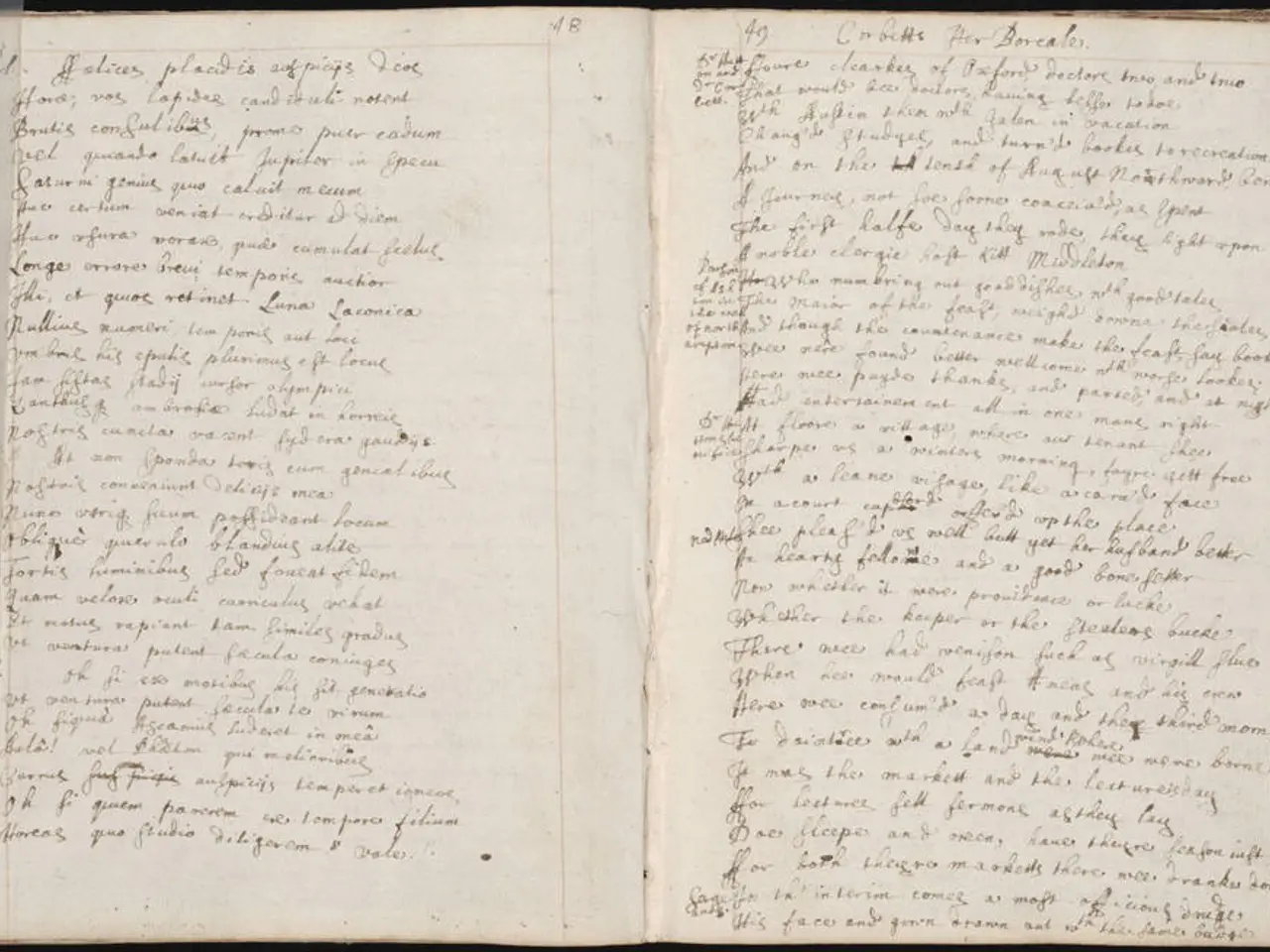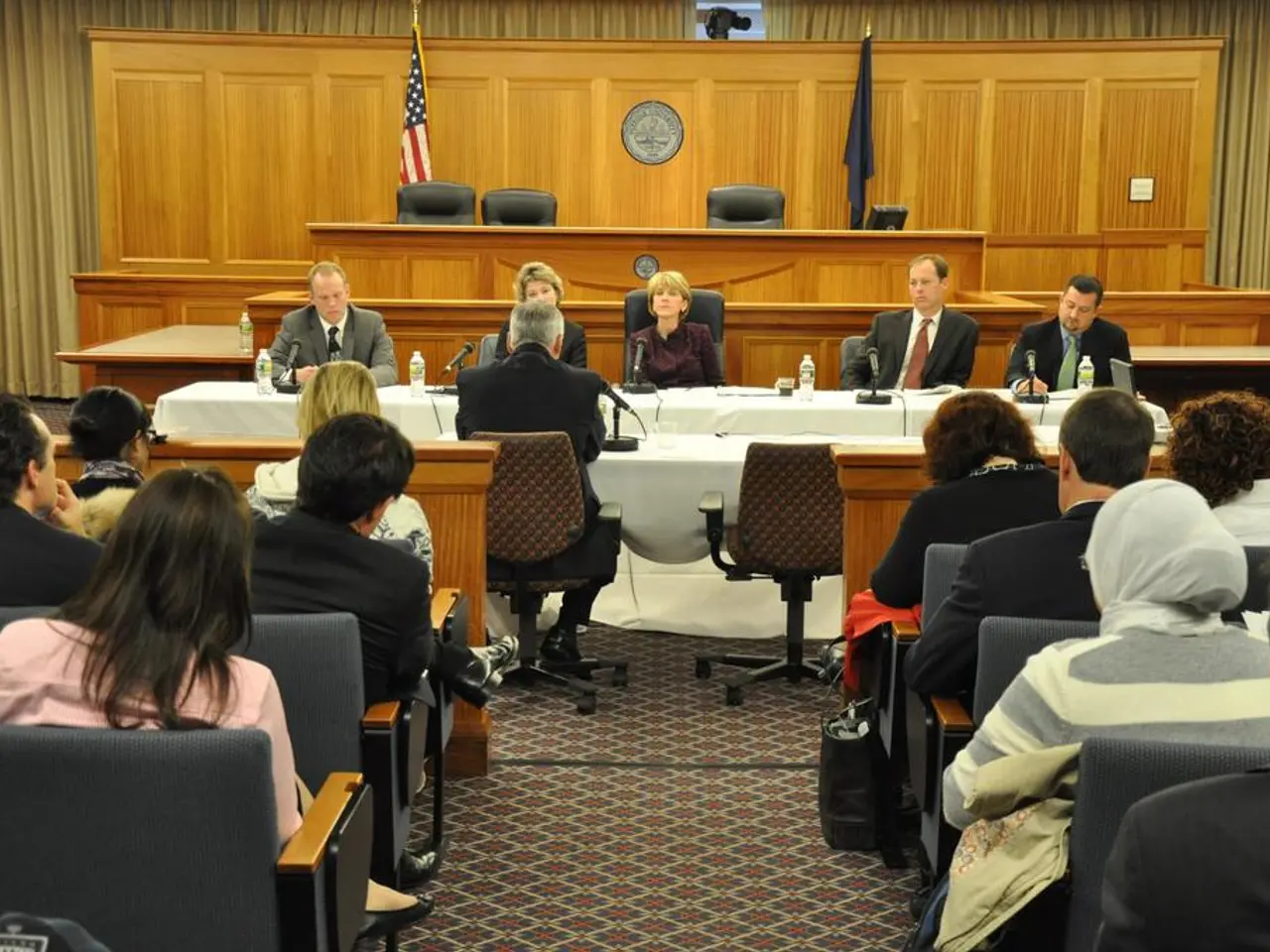Is it accurate that judges should safeguard democracy?
In a recent statement, Zaid Ibrahim, a prominent commentator and lawyer, emphasized the crucial role of the judiciary in safeguarding democracy in Malaysia. He asserted that judges have a legal and constitutional responsibility to protect democracy by faithfully discharging their duties under their oath to preserve, protect, and defend the Constitution.
The new chief justice has assured that the judiciary under his stewardship will remain a reliable and impartial institution. However, Zaid's assertion is not just a political statement, but a call to action that underscores the judiciary's role in Malaysia's constitutional framework.
The Oath of Office: A Binding Agreement
The oath of office is a jurisprudential covenant that binds all public office holders, including judges, Members of Parliament, ministers, and heads of government. It is not a ceremonial utterance, but a binding agreement to uphold the Malaysian Constitution. The founding fathers embedded the soul of constitutionalism in the Sixth Schedule, emphasizing the duty of public office holders beyond mere procedural function towards upholding democratic governance.
The Judiciary's Duties and Responsibilities
This responsibility profoundly affects the judiciary's role in Malaysia's constitutional framework. It binds judges to the Constitution, emphasizing their duty towards upholding democratic governance. This duty imposes on judges the responsibility to review the legality of executive and legislative actions rigorously to prevent abuses of power and uphold public trust, which is essential for democracy.
Moreover, the judiciary should be open to intellectual scrutiny and reform, as unchecked judicial hegemony and opacity have led to institutional erosion and lack of accountability in Malaysia. Highlighting the need for new mechanisms like an Oversight Committee to correct judicial excesses and protect judicial integrity, reinforces the judiciary's constitutional role in democracy.
The Need for Constitutional Fidelity
Zaid's statement was in response to Bersatu's failed appeal to challenge the Dewan Rakyat speaker's decision. It underscores the importance of constitutional fidelity, a role that sustains Malaysia’s democratic framework and demands continual vigilance and openness to accountability.
The British parliamentary tradition may serve as a guide, but it cannot override Malaysia's unique constitutional framework. The rule of law is a constitutional imperative grounded in the oath each judge swears. If judges do not understand the significance of the oath they take, they risk becoming accomplices to constitutional decay.
A Call for Constitutional Renaissance
In summary, Zaid views the judiciary in Malaysia as a crucial defender of democracy through constitutional fidelity, tasked with actively ensuring that all public institutions operate within constitutional bounds—a role that sustains Malaysia’s democratic framework and demands continual vigilance and openness to accountability. It is the legal industry's duty to bring matters of arbitrary decisions before the courts for adjudication.
Malaysia must undergo a constitutional renaissance, a renewed commitment to the spirit of the Constitution and the rule of law. Judges, lawyers, legislators, and holders of all public offices must rediscover the soul of the constitution as set out in the words they themselves have sworn to uphold. The new chief justice declared he will protect democracy, not as a political act, but as a bounden constitutional duty. The validity of Zaid's assertion depends on the understanding of the oath of office by the executive, legislature, and judiciary. The views expressed are those of the writer and do not necessarily reflect those of FMT.
- In light of the oath of office that binds all public office holders, including judges, Members of Parliament, ministers, and heads of government, the new chief justice has been urged to ensure the judiciary under his stewardship continues to uphold the Malaysian Constitution in a reliable and impartial manner.
- The duty of judges in Malaysia's constitutional framework, as emphasized by Zaid Ibrahim, requires them to rigorously review the legality of executive and legislative actions to prevent abuses of power, uphold public trust, and safeguard democracy.
- Highlighting the need for reform, it's crucial for the judiciary to be open to intellectual scrutiny, encouraging the creation of mechanisms like an Oversight Committee to correct judicial excesses and protect judicial integrity.
- Zaid's call for constitutional fidelity underscores the importance of a renewed commitment to the rule of law and the spirit of the Constitution, with all public office holders, including judges, having a duty to actively ensure that all institutions operate within constitutional bounds.
- Amidst general news discussions, Sabah's parliament passed a law aimed at enhancing the state's oil and gas regulations, demonstrating the government's commitment to policy-and-legislation decisions that align with the Constitution and uphold democratic governance.







